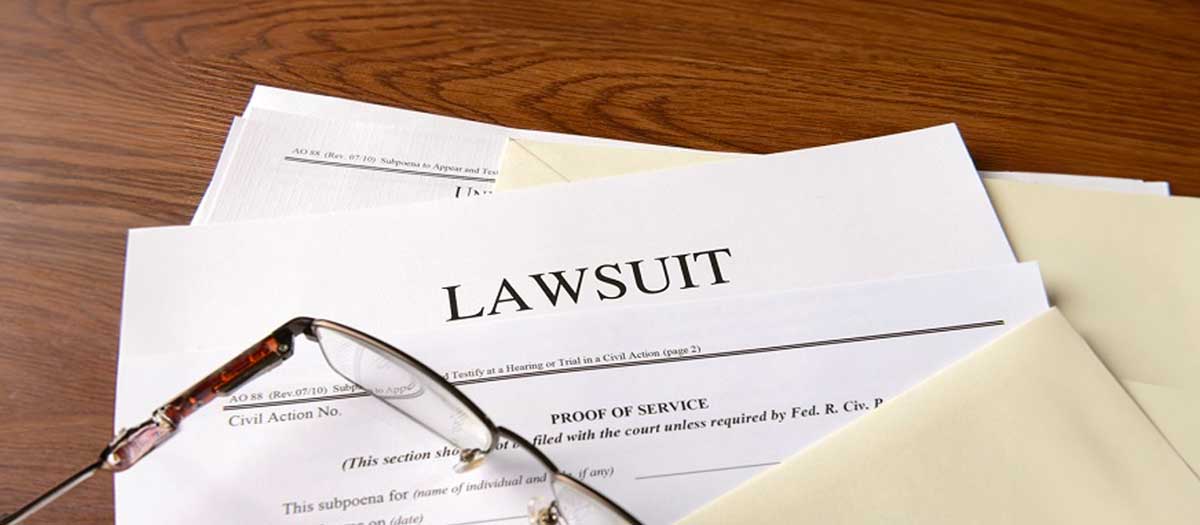Do You Need a Vacation? Why You Should Take Time Off to Avoid Burnout
In a world that never seems to stop moving, skipping out on vacation time shouldn’t be seen as a point of pride. Workplace burnout has become an all-too common part of the modern workplace, with almost two thirds of employees reporting that they have dealt with burnout at some point in their careers. Denying yourself time to relax and unwind will increase your chances of experiencing burnout, especially if you don’t allow time to get away from the non-stop barrage of emails, calls and calendar requests, which often take place outside of working hours.
Taking vacation days is necessary to maintain your mental and physical health. Any worries you might have about what might happen to your department or team if you take your hands off the steering wheel are completely unfounded and should never stop you from stepping away for a few days - or even weeks. Employers are consistently finding that employees who take vacation time have less stress, are more focused in the workplace, have increased mental and physical health, and are happier in general.
Every employee deserves to be able to take vacation time without worries about what could happen while they’re not around, no matter what title you hold or what industry you work in. The benefits of getting away speak for themselves, and should inspire employers to encourage taking vacation time.
The dangers of workplace burnout
Workplace burnout, often caused by a lack of a healthy work-life balance, poor work culture, unclear expectations, and feelings of having little or no control, can have devastating effects on employees. When left unaddressed, burnout can lead to physical and mental health issues, as well as cause problems in your personal and professional life. Burnout can increase the likelihood of developing heart disease, high blood pressure, respiratory issues, and type 2 diabetes, as well as depression, anxiety, anger and irritability.
When these burnout symptoms continue to go untreated, they can lead to hospitalization, an increased need for medication to treat mental health issues, and even premature death. The consequences of workplace burnout don’t just stop there - it can quickly lead to substance or alcohol abuse issues, financial recklessness, an inability to successfully fulfill familial responsibilities, job dissatisfaction, and a decrease in job performance. The significant consequences of experiencing workplace burnout make getting away and improving work-life balance an absolute must for all employees.
How vacations reduce the risk of burnout
Getting away from the office and having some time to do whatever you want to do is extremely important, especially when the lines between work and life have become increasingly blurred. Disconnecting and taking vacations, whether abroad, on the road, or at home, can have major mental and physical health benefits, especially when you truly step away from the office.
Studies continue to show that disengaging can dramatically reduce stress levels by improving mood and removing people from environments that make them feel overwhelmed or anxious. Vacations have been shown to reduce depression and improve life satisfaction by promoting better mental health. If that’s not enough, there’s also evidence that they improve our physical health; reducing the risk of heart attacks and heart disease, enhancing our quality of sleep, and making you feel good in general by offering a healthy boost of dopamine.
Happier workers are better workers, and there’s nothing that makes people happier than a well-deserved vacation. When vacations improve our mental and physical well-being and satisfaction with life, they inevitably improve productivity once the vacation has ended. A fully recharged employee will be more motivated to work productively, feeling less work-related stress and anxiety because they were able to disconnect and recharge their batteries. Not only will employees be happier and more productive after a vacation, but their risk of workplace burnout will be dramatically decreased due to the physical and mental health improvements resulting from vacation time.
How to ensure that your time off is truly time off
The biggest struggle people have when taking a vacation is that they often feel like they need to be connected, even when they’re halfway around the world or spending personal time with family and friends.
If you can’t unplug during your vacation, then when can you? In order to do this right, your vacation needs to be your time off. No emails, no meetings or phone calls, no calendar invitations - just you and the people and things you care most about for the duration of your vacation. Unfortunately, it’s much easier to say that you’re going to unplug than it is to actually do it. If you want vacation time to have the previously mentioned mental and physical health benefits, you’ll need to give this your all.
Before you go, make sure to plan and let your colleagues know that you’re taking time off and won’t be available during that time. If somebody is going to need to cover you while you’re gone, make sure to address this and ensure they have everything they need from you well in advance. Take care of important emails and projects before your departure to help put your colleagues at ease and to make your re-entry that much easier.
Managers should strive to make taking time off easier for employees whenever possible. They should draft policies around vacation time for workers, including things like “no contact is to be initiated with the person on vacation,” and “any issues should be brought to their managers instead.” Email autoresponders should be set up to include alternate contacts for clients. Managers should try to allow for scheduling of employee vacations for preferred weeks where possible. Since this can be difficult in the summer, in May of each year, managers might ask employees about their summer vacation plans so they can plan resources well in advance. If you are faced with a number of employees who want the same time off, have a look at the work schedule before automatically saying “no” - many businesses tend to have less of a workload in the summer, so you can probably do without 2-3 key employees depending on the size of your team. If it comes down to it, most workplaces allot popular vacation times based on seniority.
Another area managers can help with is the psychological perception of the idea of taking vacation itself. Some employees have a sense of pride in not taking sick time or vacation, but if they learn that the business requires them to take both, they will hopefully come around to a healthier perspective. This can be enshrined in HR policy or department policy, whatever works best for your business - and managers must live it too. Even if an employee’s vacation time inconveniences you, you shouldn’t express it because it will send a signal that vacations are frowned upon.
Fight pre-vacation panic with time - and people - management
It’s equally important to avoid the classic “pre-vacation panic” often brought on by key employees taking time off. Once you’ve let your managers and colleagues know when you’re taking time off and how long you’ll be gone and created your exit strategy, it’s critical that you sit down with management and discuss what needs to be done before you leave, well in advance of your planned time off.
Take note of the projects you can complete before your departure, and book time prior to your vacation to deal with this work and anything else that might come in at the last-minute. If possible, block off the last two days prior to your vacation in your calendar to deal with the inevitable rush requests from people who, despite your best efforts, panic and realize that you are off in a couple of days, and avoid last-minute meetings which could result in work that encroaches on your vacation time.
If someone is giving you work at the last minute that you cannot complete before your vacation start date, discuss with your manager how best to handle the situation. The work can likely be given to another staff member or your manager directly.
If the project(s) can wait, let management know that this is something you’d be more than happy to get into upon your return, but that there simply isn’t time to complete something of this scale before your vacation.
While you’re out, it’s best to avoid using technology whenever you can. Get outdoors, gather with your loved ones, and do the things you love to do. Try to avoid the all-too easy habit of mindlessly checking emails and messages, and use the time instead to do something more personally productive. It’s best that you don’t even think about work during your time off, so try to shift your attention away from incoming emails and alerts so you can focus on getting those batteries recharged!
Plan for the big comeback
Once you’ve had time to relax, you can plan for your successful re-entry. When you get back to work, it’s a good idea to block off some time to spend catching up on emails, meeting with team members, and finishing anything you weren’t able to address before your departure. The right plan will ensure that your re-entry is stress-free and manageable, guaranteeing that the good vibes you’ve brought with you from your vacation won’t be going anywhere for some time.
If you’re a manager or employer who’s worried about the dangers of employee burnout, the contextualized productivity data offered by Prodoscore can help you identify people at risk. Prodoscore lets you gain insight into how your employees are working, making it much easier to see if someone is overworked and overwhelmed.
Prodoscore takes the guesswork out of managing so you can ensure that your team is engaged in the right way each day, and encouraged to stick around for the long-haul. To find out more about how Prodoscore can help you identify and avoid workplace burnout, get in touch with us today. Making employee health a primary focus will not only benefit them, but it will do wonders for your business overall.

